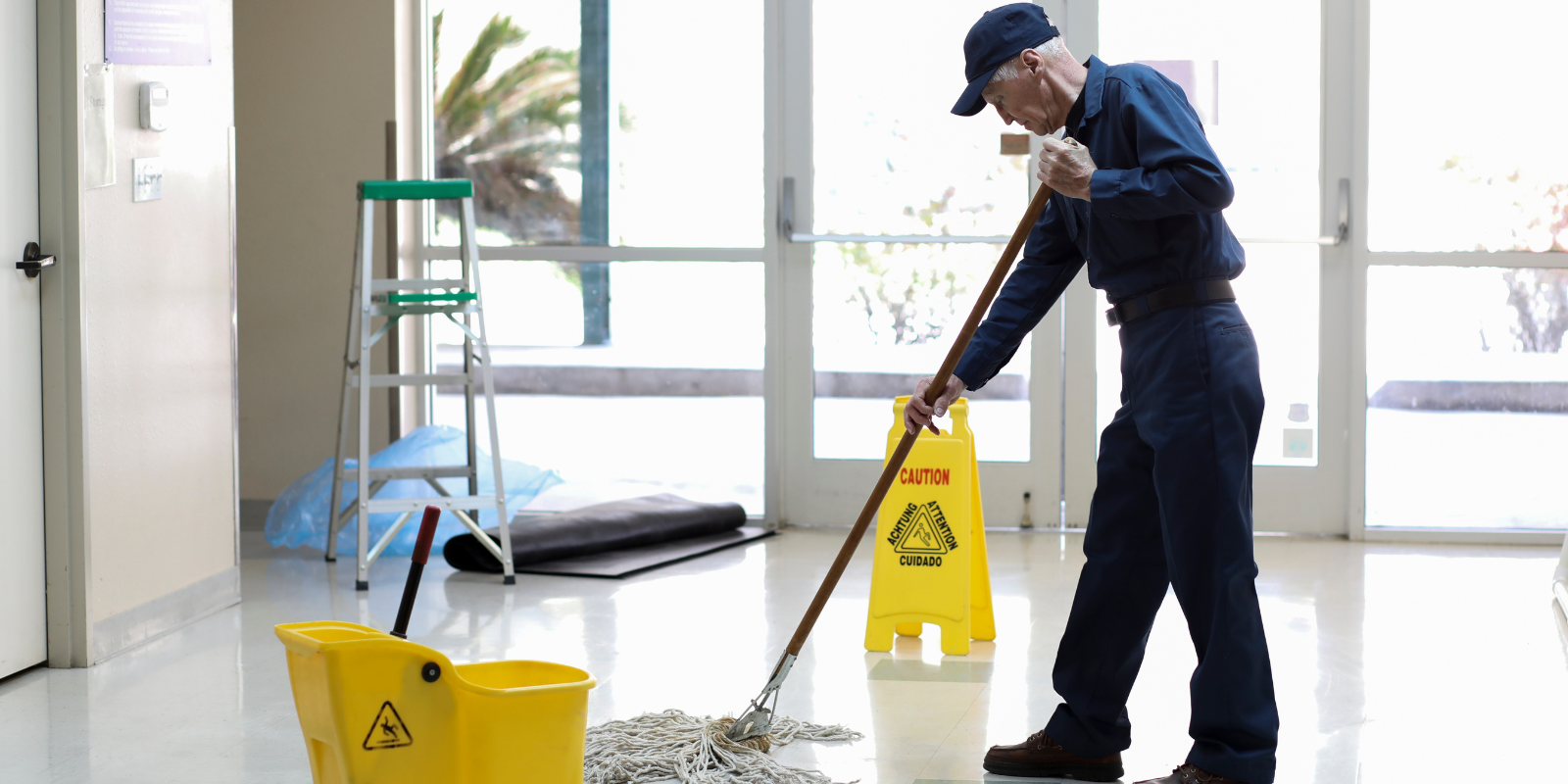To Diane Babbin-Disciullo, a custodian for the town of Duxbury, Massachusetts, her job is more than just a job.
Babbin-Disciullo grew up in nearby Kingston and has been serving Duxbury schools for 19 years. She has worked in all the town’s schools — including the middle school and the high school — and loves what she does because it’s all about the kids.
“I love making a positive impact in their lives,” she says.
That’s why she was so disappointed when, on Dec. 6, the Duxbury School Committee announced that it would explore the possibility of privatizing the custodial staff — that is, hiring an outside company to fill and manage those positions.
“My co-workers and I, we’ve given our all to this town, and we felt we weren’t being appreciated,” says Babbin-Disciullo, who is also a chapter chair in AFSCME Local 1700 (Council 93).
Privatization of public service jobs, often motivated by cost cutting, can have serious negative effects not just on the workers, who may lose their jobs or see their wages and benefits reduced, but also on the community. That’s because privatization almost always leads to lower-quality public services.
“These things almost always start out the same,” says Jim Durkin, legislative director for Council 93. “Management always uses the same talking points. They say this is just exploratory, no decisions have been made. ‘We’re just looking into this.’ But it’s a slippery slope. Almost invariably, those explorations lead to privatization. So, you have to act from the beginning as though it’s going to happen.”
Jason Hook, a custodian in nearby Hanover who is president of AFSCME Local 1700 and serves as the sergeant-at-arms on the Council 93 Executive Board, says that his first reaction upon hearing of the privatization attempt in Duxbury was that they had to act fast.
“We have to make every effort to stop it,” he remembers thinking.
And so, as soon as the school committee made its announcement, AFSCME leaders and members sprang into action. Babbin-Disciullo, and Hook and four different departments within Council 93 worked together, along with AFSCME International, to come up with ways to educate the community about the dangers of privatization and pressure the town administration to back off.
Babbin-Disciullo was able to get hundreds of people on social media to sign a petition against the privatization effort. Hook suggested that they go on WATD 95.9 FM, a popular local radio station, to warn about the dangers of privatization.
“When you’re replacing trusted, dedicated custodians … and you’re paying the contract crew low-wage jobs, you have this revolving pool of strangers coming in and out of your schools,” Durkin said on air.
Durkin also warned that cost savings attained through privatization are often short-lived, and that once a community loses the infrastructure to provide a public service in-house, it’s very difficult to bring it back.
AFSCME members, including the 20-plus custodians whose jobs were directly threatened, showed up to make their voices heard. They stood together, spread the word, and rallied outside school committee meetings.
The result was total capitulation by the committee: In April, the committee voted 5-0 to scrap the privatization effort and look for solutions with the workers through the collective bargaining process.
Babbin-Disciullo says she always felt confident they would win because the community was on their side. The support of the parents and the solidarity of union members is what made the difference.
“The idea of the school committee was to divide us, but we stuck together to fight,” she says. “And I think that was the most important thing.”
Hook, who has worked as a custodian in the schools he attended as a child, agrees that the key to success was highlighting the essential work that custodians provide and their connection to the community.
“Often a custodian is seen as a faceless position,” he says. “But these are the people who leave their own families during a storm, who work seven days a week. They are an integral part of our buildings. They care about the communities they serve.”
